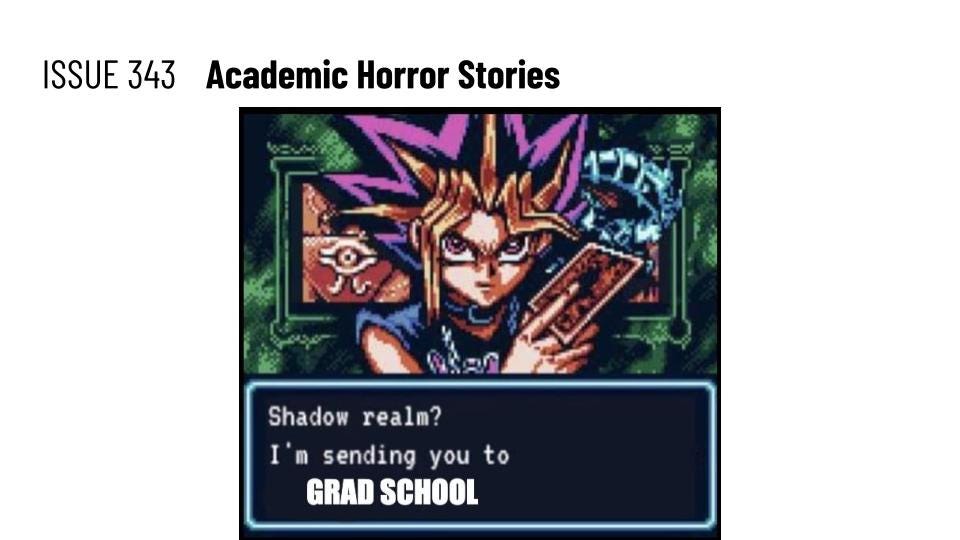Issue #343: Academic Horror Stories
This week, I am revisiting the personal essay genre. I’m not a huge fan and do not think of myself as a very compelling writer in this style. Still, this is a topic I’ve been sitting on for a while. In July, I wrote about the writing and defense of my dissertation.
It was an experiment in personal essay writing. This week is also a part of that story, a…




